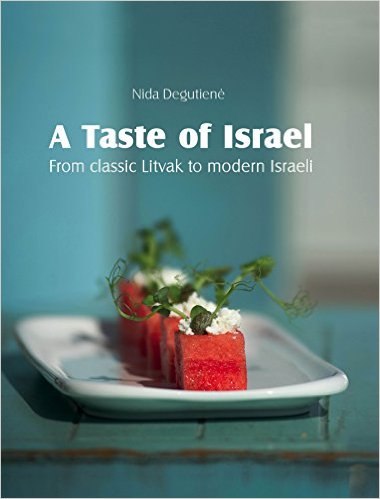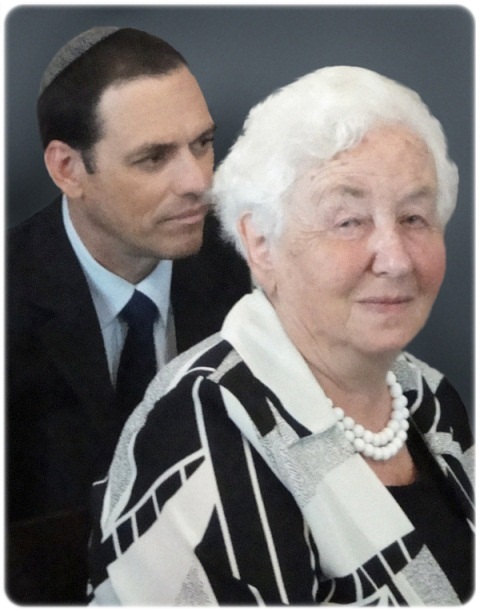[UPDATE / original publication 1 Feb. 2022]
Opinion | Sheduva, Lithuania | Museums | Litvak Affairs
◊
◊
JOHANNESBURG—The Chief Rabbi of South Africa, Rabbi Dr. Warren Goldstein, today added his voice to the international Litvak and wider opposition to state-sponsored desecration of the Old Vilna Jewish Cemetery at Piramónt in the form of a national convention center surrounded by Jewish graves going back half a millennium in Vilna, the city once known as Jerusalem of Lithuania. The office of the chief rabbinate made public his letter to Lithuania’s president, Gitanas Nausėda and prime minister Saulius Skvernelis.
A PDF of his letter is available here, and follows below. Please use handles in the upper left-hand corner to turn pages.
◊
◊
Preamble
Time to — Go to the Pale
Reflections
Where to Now?
Concluding Thoughts
◊
This is part of a “reflection” that has been more than 65 years in the making. My earliest memories are of being surrounded by a warm and caring rather secular Jewish family in Johannesburg, South Africa, that all seemed to have hailed from a tiny place called Plungyán, in Lithuania, which made us all “Litvaks”. Only more recently did I learn that this pertained not only to my mother’s side of the family. My father’s side came from Riga in Latvia, also Litvaks, fortunately. Both families left The Pale of Settlement in the time-frame 1890-1906, eventually finding their way to Heilbron in the Orange Free State in the case of my Mom’s family, and Ceres in the Cape of Good Hope for my Dad’s. Both of these were to become part of the Union of South Africa in 1910.
I grew up believing that the most important people in my world came from The Pale, most specifically this tiny dot on the map called Plungyán, that they migrated to South Africa where they settled, proliferated, bickered, were educated and prospered. Then, after two or three generations, many, if not most left South Africa, perhaps the biggest group to Israel in the 1950’s and 60’s, some to Australia, the UK and USA, and the Daneman clan to Canada.
◊
PREAMBLE
“The Lost Shtetl” will not be a generic community of faceless Litvaks. It will make tangible the lives of real individuals. But will we learn about the real individuals from the town and its region who destroyed them? Their names and faces? Or will we simply tuck them away into the phrase: “The Nazis and their local collaborators murdered 664 Šeduva Jews in Liaudiškiai forest”?
◊
 NEW YORK—Tomorrow’s daytime event featuring Nida Degutiene’s new book, A Taste of Israel: From Classic Litvak to Modern Israel (Penguin Random House South Africa 2016) is a joint production of the Consulate General of Lithuania in New York City and the Yivo Institute for Jewish Research. It will be held at the Consulate General’s offices at 420 Fifth Avenue at 12:30 PM on Monday 16 January 2017. Defending History recommends the event to our readers in the New York City area and we recommend Ms. Degutiene’s excellent book (available from many outlets including Amazon).
NEW YORK—Tomorrow’s daytime event featuring Nida Degutiene’s new book, A Taste of Israel: From Classic Litvak to Modern Israel (Penguin Random House South Africa 2016) is a joint production of the Consulate General of Lithuania in New York City and the Yivo Institute for Jewish Research. It will be held at the Consulate General’s offices at 420 Fifth Avenue at 12:30 PM on Monday 16 January 2017. Defending History recommends the event to our readers in the New York City area and we recommend Ms. Degutiene’s excellent book (available from many outlets including Amazon).
VILNIUS—The 22 November edition of the Jerusalem Post carried the following news item about an international meeting at the Peres Center for Peace and Innovation.
Lithuanian and Israeli diplomats, academics, and government officials, together with representatives of Litvak organizations in Israel, the American Jewish Committee, the World Jewish Congress and the Tel Aviv Municipality, will congregate on Thursday at the Peres Center for Peace and Innovation to discuss Lithuania and Israel – Past, Present and Future. Among the Lithuanians will be Lithuanian Ambassador Edminas Bagdonas, Ronaldas Račinskas, executive director of the International Commission for the Evaluation of the Crimes of the Nazi and Soviet Occupation Regimes in Lithuania; Faina Kukliansky, chairwoman of the Lithuanian Jewish Community; and several other Lithuanian dignitaries. Among the topics tabled for discussion is the reinstatement of Lithuanian citizenship to Lithuanian expatriates living in Israel.
◊
The following opinion piece by Daniel Lutrin appeared in the South African Jewish Report on 1 June 2016 under the headline “Lithuanian Citizenship: Only Successful Applicant is a Dead Jew.” Comments or discussion may be directed to the South African Jewish Report. Defending History is always prepared to consider actual articles in reaction to published articles.
It was gratifying to see a recent article regarding the plight that Jews of Lithuanian origin (Litvaks) are facing when applying to have their Lithuanian citizenship restored. The article, however, does not hone in on the critical matter at hand, namely the extent to which Lithuanian bureaucrats have gone to deny Jews of their ancestral right to citizenship.
TEL AVIV— Daniel Galay, director of Leyvik House in central Tel Aviv, one of Israel’s major Yiddish culture institutions, issued the following statement today on the Leyvik House website (copy), and on its Facebook page (see also Efraim Zuroff’s Facebook comment). For background see our earlier report.
Appeal to the World Jewish Congress
Tel Aviv, 12 June 2014
Like all lovers of Yiddish language and culture, we at Leyvik House in Tel Aviv, home to the Union of Yiddish Writers and Journalists in Israel, were happy to see the recent announcement that the World Jewish Congress would be facilitating a new Yiddish center in Vilnius, Lithuania.
A recent report, also available as PDF, suggests sudden and deep involvement of the World Jewish Congress in the Lithuanian government’s repeatedly documented use of Yiddish, Judaic studies and even Holocaust studies as means to advance — or cover for — state-sponsored Double Genocide revisionism with respect to the essential narrative of the Holocaust. The report has proven to be disturbing for the wider Holocaust survivor community and its supporters.
The Lithuanian government is pouring ever more resources and doing an ever better job with its PR campaign to turn Litvaks (Jews of Lithuanian origin) into virtual PR agents who now go further than they do themselves: painting a picture of the New Jewish Paradise in Lithuania without even mentioning the existence of painful current issues. Jerusalem Post editor-in-chief Steve Linde no doubt meant only the best with his Chapter-of-Psalms, and will, I feel confident, now be happy to give the issues some rounded airing.
Readers on several continents again report to Defending History that the Jerusalem Post has failed to post perfectly polite comments to yet another ecstatic ode to issueless Lithuanian-Jewish love. This time it’s the story “Growing Lithuanian Business Ties Beget Political Support” which reported on the recent visit to Israel of the Lithuanian Minister for the Economy Evaldas Gustas.
The rejected comments pointed out that a senior specialist employed at his ministry was exposed last spring as Lithuania’s most hateful internet blogger, responsible for a series of images disparaging to Jews, Blacks, Gays, and to the history of the Holocaust in Lithuania (sampling of images here). Our Open Letter to the minister essentially asks why the hateful top official is still in office. Is such a question taboo for a major English language daily in Israel?
O P I N I O N
NOTE: This article was submitted to the South African Jewish Report last spring. It never appeared and is therefore posted here for information and in the spirit of the ongoing discussion. It is again poignantly relevant in view of the South African contingent to be courted by government officials at the Fourth International Litvak Congress to be held in Vilnius later this month.
I have just returned from the United States Holocaust Memorial Museum. The newly launched special exhibition, “Some Were Neighbors: Collaboration and Complicity in the Holocaust,” left me feeling drained. It’s not that I learned anything I didn’t already know. It’s just that the message, delivered in marquee-style displays, old photographs, video footage from the period, and recent oral testimonies, juxtaposed to create the sensation that I had been there — a victim.
“But what do we learn that resembles what we have seen? We have barely begun to understand the killing fields of Lithuania. . . .” writes Edward Rothstein in his review of the new exhibition (“Bystanders, Not So Innocent,” April 25, 2013, New York Times).
UPDATES:
1. The Secret “Big-Bucks Vilna Ghetto Disneyland Theme Park” Project (minus the Jewish community, minus apologies to the Partisans of Vilna, minus removals of memorials to local Holocaust perpetrators).
2. Renewed International Petition.
3. Ghetto survivors who joined the anti-Nazi resistance have been criminalized.
4. Government delegation in South Africa trying to pry Disneyland “investment” from unsuspecting South African Jews.
SEVEN SIMPLE SOLUTIONS

ZHAGER, northern Lithuania. Over a hundred people gathered here today on the historic town square to unveil a trilingual plaque memorializing the erstwhile Jewish population of thousands in the town, today Žagarė. The event was incorporated into the annual Cherry Festival and suitably entitled “You can’t fudge the history.”
SEE ALSO THE REPORTS BY ROD FREEDMAN AND SARA MANOBLA
THE QUESTION: IS IT THE ONLY TOWN-CENTER IN ALL THE LAND WITH CLEAR AND TRUE WORDS ON THE TRUE FATE OF THE JEWISH POPULATION?
The text — in English, Lithuanian and Yiddish — summarizes the unvarnished history, with prominent reference to local Lithuanian collaboration (though historians will quibble with the use of “some” in place of “many” among other points). It is placed right in the center of town, rather than at a mass grave site deep in the forest; that might well be a first in modern Lithuanian history.
Given the Lithuanian heritage of the overwhelming majority of South African Jews, it is somewhat surprising that seemingly few have visited modern-day Lithuania. Bucking the trend, I visited during March with a small yet prominent delegation of Jewish business executives, on a “mission” arranged by the American Jewish Joint Distribution Committee (JDC), the largest Jewish humanitarian and welfare organization in the world.

Getty Images
Thought experiment: Imagine an African American in the city of Columbia, South Carolina, being called an extremist or fanatic for peacefully expressing the opinion that it is offensive for the Confederate flag to be hoisted on the grounds of the state capitol building. Imagine him or her being called extremist or fanatic for failing to be grateful that the flag was, after much protest, moved from atop the dome to the mere grounds of the capitol and its design slightly changed to conform to the Confederate Battle Flag (as a “concession”).
Imagine if a snow-white editor of a web journal singled out for David Duke style praise “Moderate African Americans” who just say “Thank you” when a pathetic morsel of PR is offered up by local authorities in the face of mounting international opprobrium.
There would be public outrage at the racism.

Ivan Glasenberg, CEO of Glencore: Celebrated Litvak scion is feted by government operatives in Vilnius
According to a BNS news report released today (full text below), the Lithuanian prime minister’s advisor Mykolas Majauskas reported that discussions were held with Glencore’s CEO Ivan Glasenberg concerning plans to inspire more Litvaks to invest in the country. Mr. Majauskas also claimed that “some Litvaks are considering buying farms in Lithuania in order to take active part in communal activities.”
DefendingHistory.com takes the view that Litvak investment should progress in tandem with genuine progress on Lithuanian-Jewish issues, and not as long as the present “dual-track” (“double game”) policies continue to be applied. Ruses attempted have on occasion entailed usurpation of the Litvak identity by government agencies.
The Israel-South Africa Chamber of Commerce is hosting as guest of honor Lithuanian Foreign Minister Audronius Ažubalis at a gala dinner. Given the current Lithuanian government’s policies towards the Holocaust, it is a bizarre choice.
More than twenty years into their post-Soviet eras, Lithuania and other East European nations are understandably and appropriately seeking international acknowledgment for the suffering inflicted on them by the Soviet regime.
However, rather than commemorating this in its own right, Lithuania has led the campaign to tie this recognition in with the Holocaust, in a policy known as Double Genocide. By so doing, the recognition they seek for their own suffering under the Soviets ipso facto becomes a policy that distorts and downgrades the Holocaust, and undermines and threatens its memory.
MORE IMAGES
A FIRST-TIME PARTNERSHIP BETWEEN LEYVIK HOUSE YIDDISH CULTURE CENTER, THE SIMON WIESENTHAL CENTER ISRAEL OFFICE AND THE ASSOCIATION OF LITHUANIAN JEWS IN ISRAEL
Holocaust survivors Shlomo Cheskov (left, from Shavl/Šiauliai), and Joseph Melamed (from Kovno/Kaunas) at the Tel Aviv demonstration. Mr. Cheskov’s sign says (in Yiddish) “With our partisan heroes, against neo-Nazism. We are here!” Mr. Melamed’s (in Hebrew) addressed to the South African businessmen diners at the gala dinner: “Dear Diners! Where is your conscience? Your solidarity with Holocaust survivors and resistance fighters and partisans?” Photo: Bella Bryks-Klein.
A FIRST-TIME PARTNERSHIP BETWEEN LEYVIK HOUSE YIDDISH CULTURE CENTER, THE SIMON WIESENTHAL CENTER ISRAEL OFFICE AND THE ASSOCIATION OF LITHUANIAN JEWS IN ISRAEL